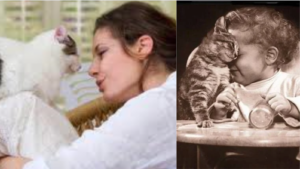“Should people really love their pets so much?”
This question came up during lunch with my friend Sara, who was intrigued by my work in Pet Grief Counseling. She was eager to understand the profound bond people often share with their animal companions and how I support them through their grief when these companions pass away.

“Yes,” Sara continued impatiently, “but, Joy, shouldn’t people direct that energy towards other humans rather than animals? I get the ‘unconditional love’ and that pets are ‘family members’—but isn’t there something misplaced here? How do you help people form connections with other humans?”
My initial reaction was amusement at the human tendency to judge and want to change what isn’t immediately understood. So unlike a dog or a cat, I thought. Animals teach us to remain curious a little longer before judging. They also show us that if there’s no direct threat, we can skip judging and move straight to acceptance, even without full understanding.
“Well, Sara,” I replied thoughtfully, “as a counselor, it’s not my role to make people feel differently or love differently. If someone has a strong connection with an animal, there’s a reason for it, and that bond is beautiful and deserves respect. A significant part of my job is to help people avoid judging their own feelings—to just sit with them, be curious, and observe.”
Sara mentioned that her aunt has been deeply grieving the loss of her schnauzer for a prolonged period. Sara’s impatience with pet grief partly stems from not wanting to see her aunt suffer. She wishes for her aunt to recover, move on, and be happy and engaged again. To cope with her own discomfort in the face of pet grief, Sara tends to judge it as invalid or “wrong.” This perspective allows her to distance herself from her aunt’s pain, viewing her grief as “misplaced” or “inappropriate.”
I’ve noticed that people who find significant emotional support in an animal companion often have been deeply hurt by people in the past. In some cases, the animal provides emotional availability and love in a way that people may not. However, my observation is that those with a strong bond with an animal usually also have human connections. They aren’t isolated with their pets; they maintain friendships and loving relationships with family. Each relationship, whether with humans or animals, fulfills some need, providing comfort or support. Each bond is unique—a spirit-to-spirit connection.
Sara’s question, “Should people love their pets so much?” sparks further questions: Why do we love the beings we love? Should we love anyone at all? What is the point of loving others? How does it benefit us to love? How does it benefit the world?
Accompanying people through pet grief, I feel honored and deeply aware of the privilege of witnessing the beautiful, profound connections between beings. The grief is, in a sense, beautiful because it acknowledges deep love.
We love because we are born to love. “Shoulds” do not enter into it.
